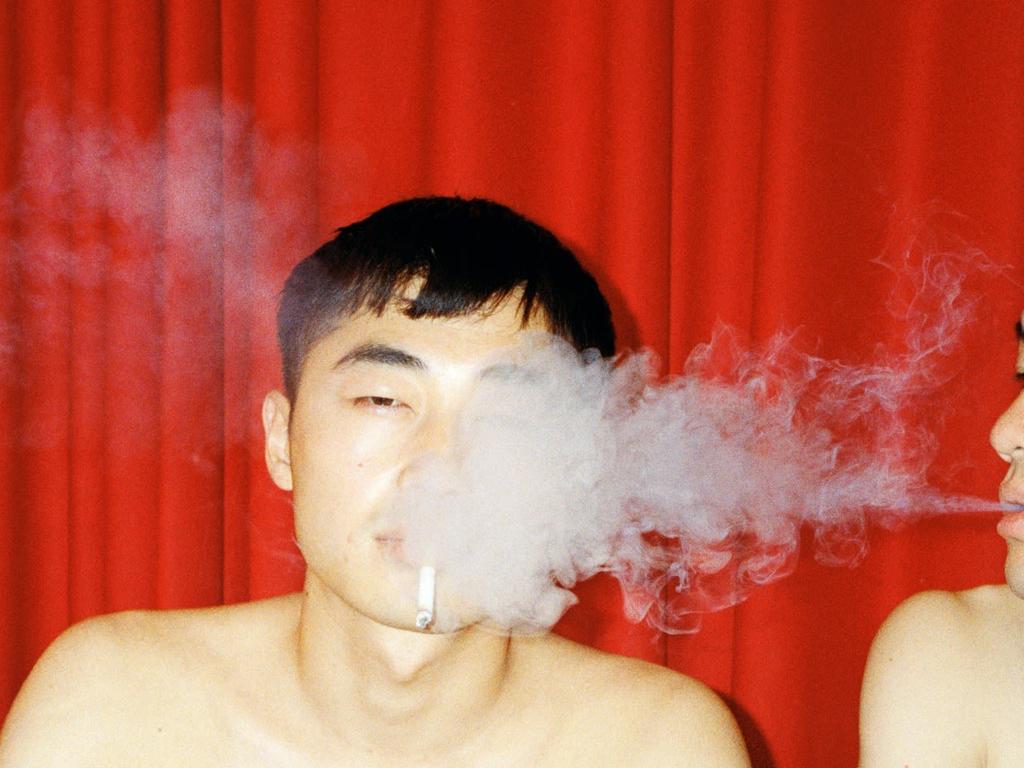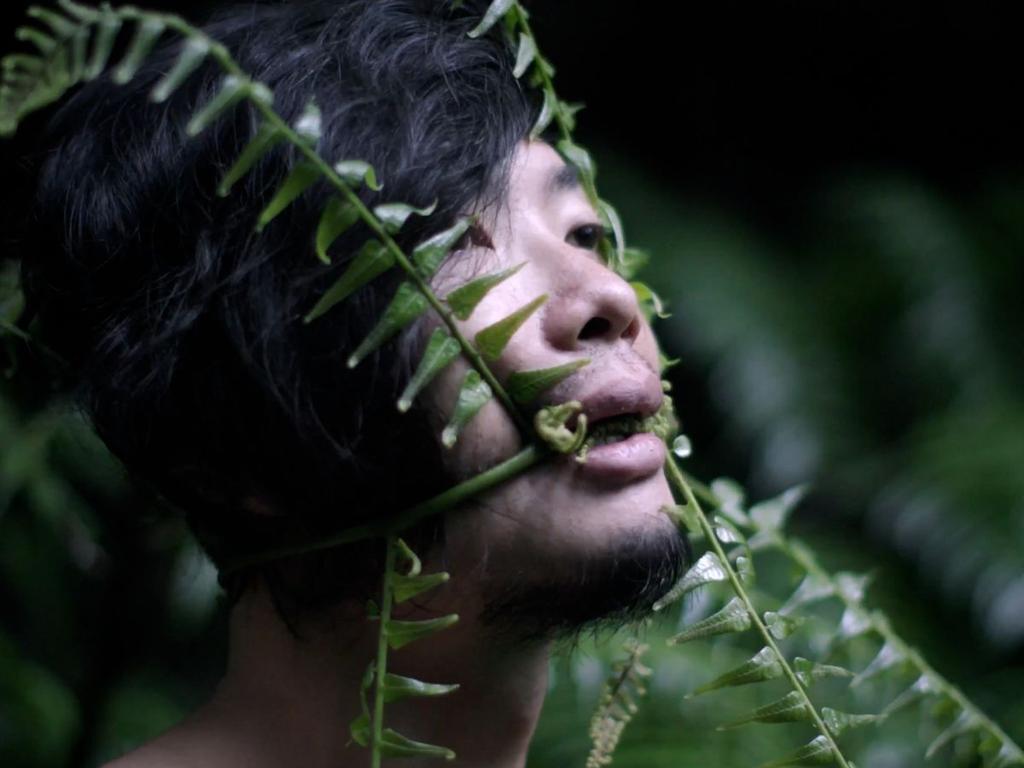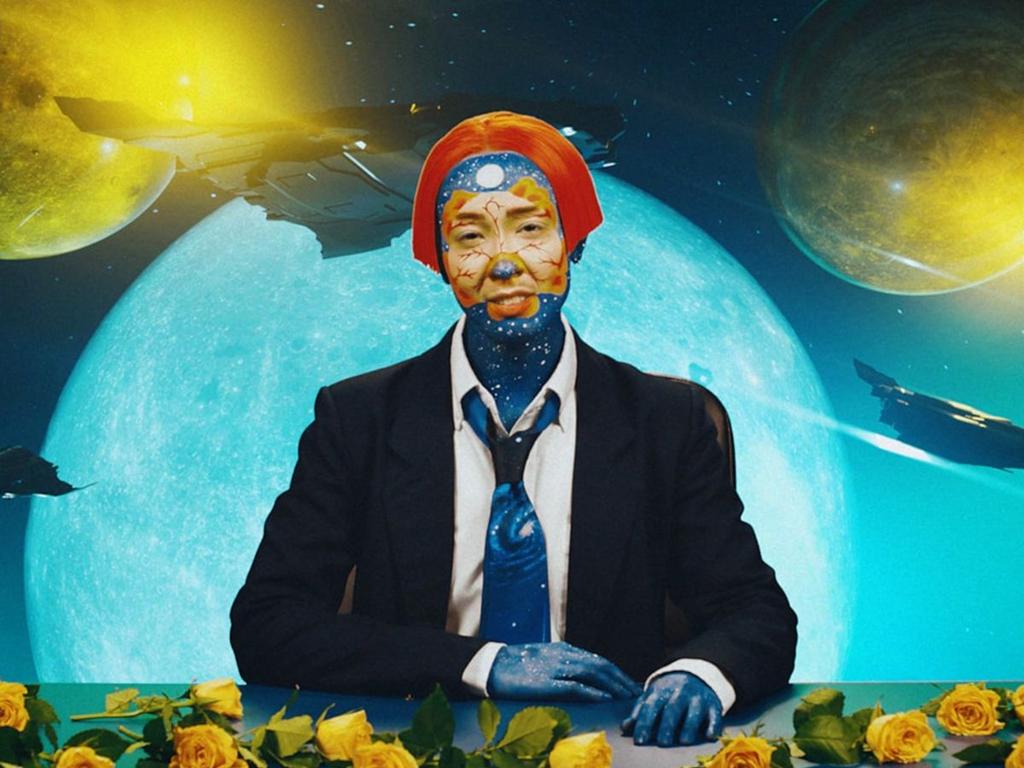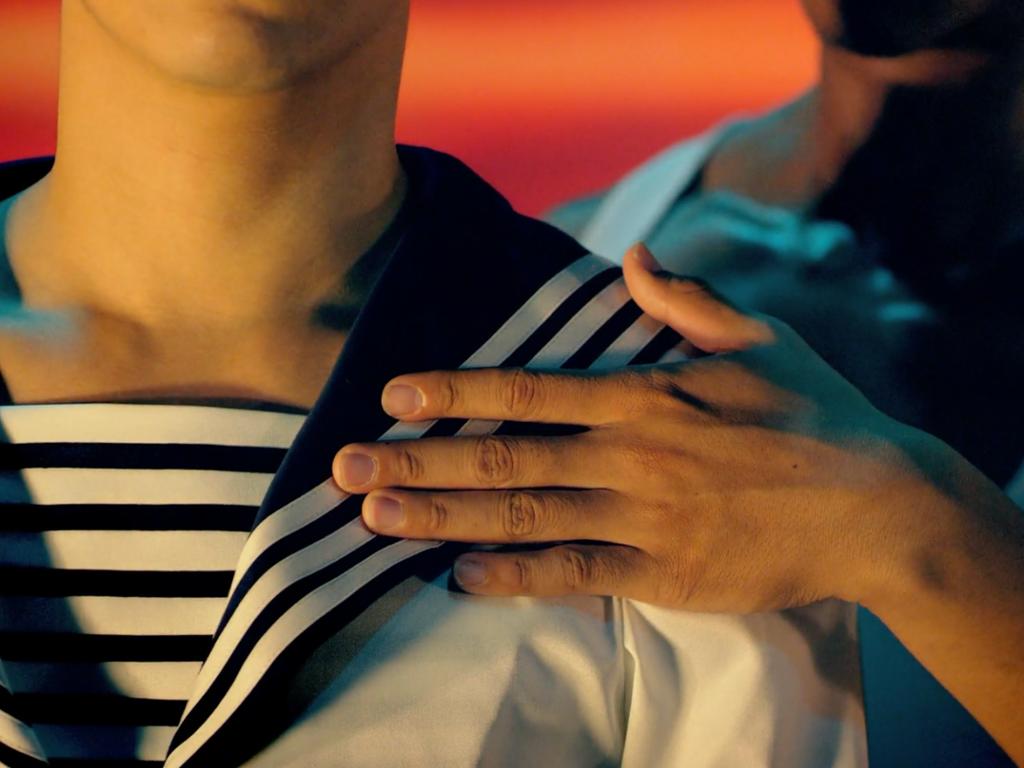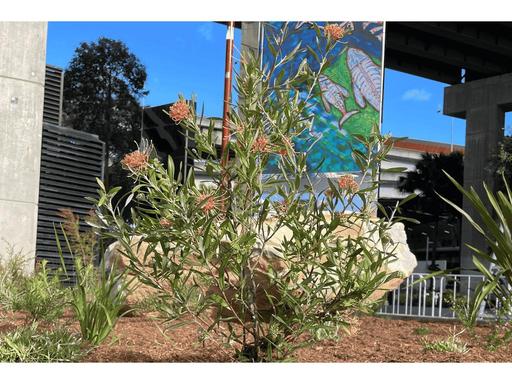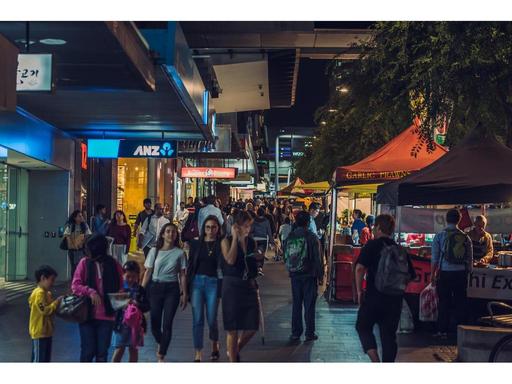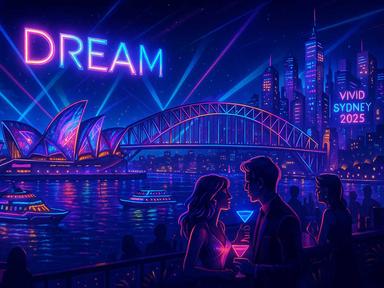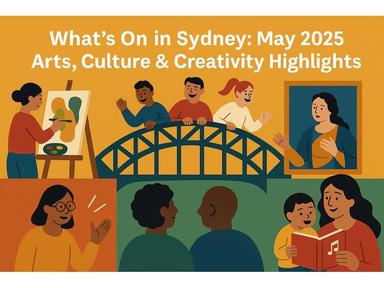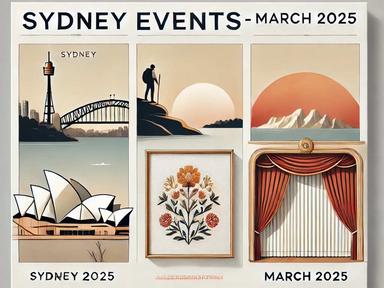when: 18 June 2025 - 16 November 2025 | venue: White Rabbit Gallery | cost: Free | address: 30 Balfour Street, Chippendale NSW 2008 | website: https://whiterabbitcollection.org/
published: 30 Jun 2025, 5 min read
This showcased event has concluded.
Expired
Chinese history wasn't always straight. While queerness may seem like a foreign import, its roots in China date back to ancient times.
Bisexuality was the norm among emperors-Emperor Ai of the Han dynasty, for instance, openly took a 'male favourite'. This was part of a broader history of same-sex relationships, non-normative sexualities and transgender identities that have largely been forgotten. Queer pasts are actively erased so that queer futures may cease to exist.
Although homosexuality was decriminalised in China in 1997, it had previously been classified as a crime under the offence of 'hooliganism'. Today, lesbian and gay spaces continue to face closures due to 'official pressure', queer activists and organisers are subjected to police questioning, LGBTQIA+ representation is censored across the media, and 'lavender marriages' between queer men and women persist due to familial expectations.
Despite these constraints, queer communities endure. They call themselves tongzhi (同志), or 'comrade'. The term was first popularised in the early twentieth century by Sun Yat-sen, father of the Republic of China, to unify people in revolution. Later, the Communist Party adopted it as a genderless, classless form of address. In 1989, the gay and lesbian community adopted it as their own - and it has remained ever since.
The literal meaning of tongzhi, 'common will', suggests the queer community is united by more than just sexual orientation - an idea echoed by philosopher Michel Foucault in his article Friendship as a Way of Life. What makes queerness both 'disturbing' and powerful is that it has become a sprawling ecosystem of relationships, networks and alliances. 'Everything that can be troubling in affection, tenderness, friendship, fidelity, camaraderie and companionship' connects the artists in Tender Comrade. Straight, queer or undisclosed - together, they create an exhibition that breaks all the rules defining who we are and how we are perceived.
Content from UpNext.com.au. Please don't scrape website.
Chinese history wasn't always straight. While queerness may seem like a foreign import, its roots in China date back to ancient times.
Bisexuality was the norm among emperors-Emperor Ai of the Han dynasty, for instance, openly took a 'male favourite'. This was part of a broader history of same-sex relationships, non-normative sexualities and transgender identities that have largely been forgotten. Queer pasts are actively erased so that queer futures may cease to exist.
Although homosexuality was decriminalised in China in 1997, it had previously been classified as a crime under the offence of 'hooliganism'. Today, lesbian and gay spaces continue to face closures due to 'official pressure', queer activists and organisers are subjected to police questioning, LGBTQIA+ representation is censored across the media, and 'lavender marriages' between queer men and women persist due to familial expectations.
Despite these constraints, queer communities endure. They call themselves tongzhi (同志), or 'comrade'. The term was first popularised in the early twentieth century by Sun Yat-sen, father of the Republic of China, to unify people in revolution. Later, the Communist Party adopted it as a genderless, classless form of address. In 1989, the gay and lesbian community adopted it as their own - and it has remained ever since.
The literal meaning of tongzhi, 'common will', suggests the queer community is united by more than just sexual orientation - an idea echoed by philosopher Michel Foucault in his article Friendship as a Way of Life. What makes queerness both 'disturbing' and powerful is that it has become a sprawling ecosystem of relationships, networks and alliances. 'Everything that can be troubling in affection, tenderness, friendship, fidelity, camaraderie and companionship' connects the artists in Tender Comrade. Straight, queer or undisclosed - together, they create an exhibition that breaks all the rules defining who we are and how we are perceived.
Go see Tender Comrade 2025.
Tender Comrade 2025 is on 18 June 2025 - 16 November 2025. See start and end times below. Conveniently located in Chippendale. Call 0283992867 for details. Visit their website at https://whiterabbitcollection.org/.
Are we missing something? Help us improve this article. Reach out to us.
Event Details
Are you looking for 'Things To Do' ideas?
Sydney Upnext Team
Hey Sydney siders! I'm your dedicated UpNext scout, on a mission to navigate the bustling streets and scenic byways of our harbour city to deliver the best deals and lifestyle tips. From the iconic Opera House to the surfers' paradise at Bondi Beach, I'm out and about uncovering the crème de la crème of shopping, dining, and entertainment in Sydney. Need to know the hippest pop-up shops or the latest arts festival? I've got you covered. Catch my daily dose of Sydney life and insider tips on Instagram @UpnextSydney. I share real-time finds, from sample sales to Sydney's secret dining spots, and everything in between. For locals and tourists wanting to get the most out of this vibrant city, follow me for a curated guide to living large and spending smart in Sydney. Join the journey, and let's make every day in Sydney an adventure to remember!
See recent events discovered by Sydney Upnext Team
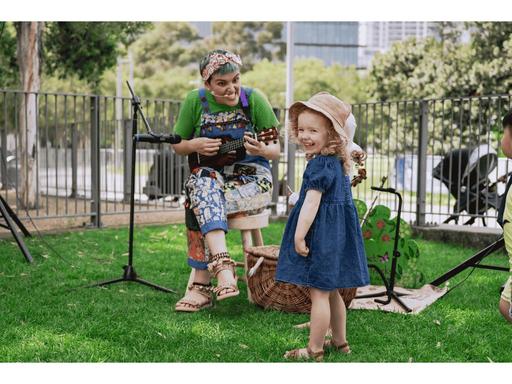
Rhythm N Bubs 2025
Head to Darling Harbour for Rhythm n Bubs, the free music-filled play session for your little ones....
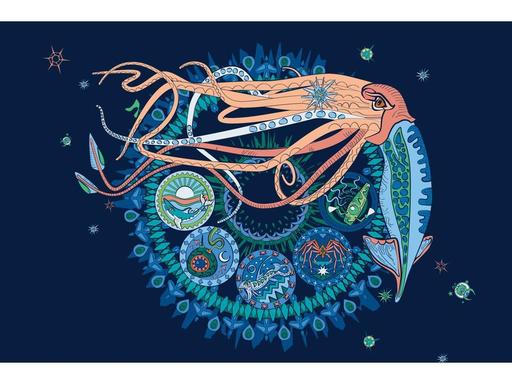
Ultimate Depth: A Journey To The Bottom Of The Sea 2025
Ultimate Depth: A Journey To The Bottom Of The Sea 2025
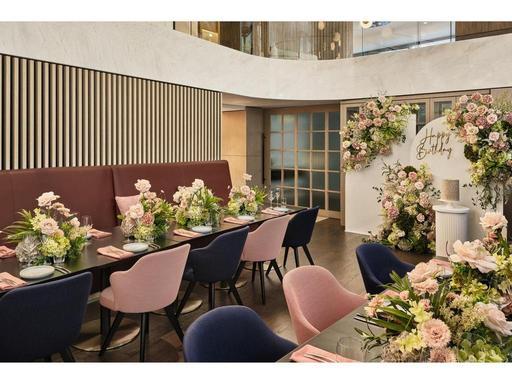
Celebrate Life's Moments 2025
Celebrate Life's Moments 2025
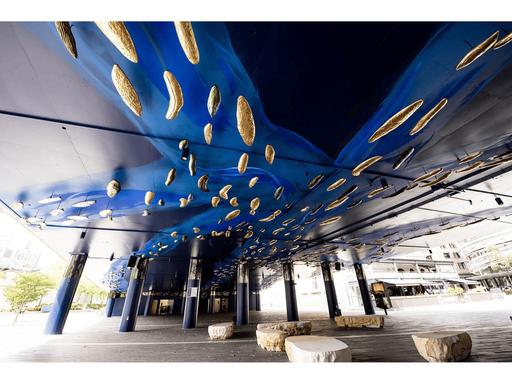
Pop-up Piano At Pier Street Underpass 2025
Get ready for a unique musical event....
